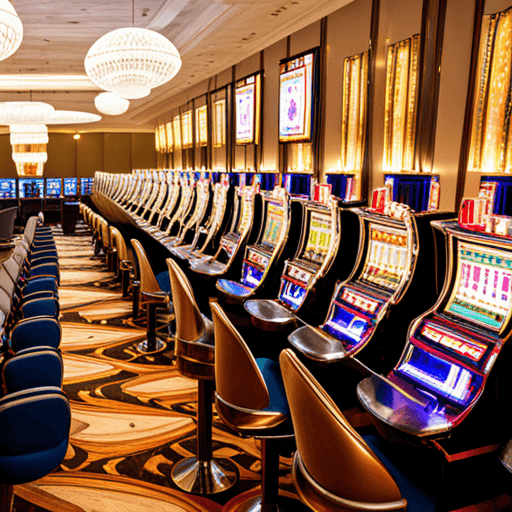
Gambling games have long been an integral part of human culture, providing not just entertainment but a intriguing reflection of our aspirations, dreams, and fears. From the spinning reels of a slot machine to the tactical play of poker, these games represent a spectrum of human feelings and experiences. At their core, casino games are not just a chance to earn cash; they are a reflection of life itself, where danger and gain merge and luck can change in an instant.
As players assemble around tables or sit in front of vibrantly illuminated machines, they engage in a ritual that transcends mere playing. These games reflect our innate desires for social interaction, thrill, and the search for fortune. They also unveil deeper truths about human psychology, such as our relationship with chance and the adrenaline of the unknown. In exploring casino games, we discover not only the mechanics of play but also the rich tapestry of the human experience, showcasing our intertwining narratives of hope and reality.
The Psychology of Gambling
Wagering is deeply rooted in the psyche of individuals, tapping into various emotions and wants. The thrill of taking risks is a fundamental aspect that draws players in, whether the excitement of spinning a roulette or the excitement of drawing a winning card in a poker game. This rush of adrenaline is frequently likened to other forms of thrill, as the uncertainty of outcomes triggers a unique psychological response. Gamblers often become entranced by the possibility of winning big, leading to an irresistible draw toward casino games.
Additionally, a crucial component of the psychology behind gambling is the concept of hope and aspiration. Players often indulge in dreams of financial freedom and the luxurious lifestyle that can follow winning. This optimism fuels their ongoing participation in gambling, as it provides a sense of purpose and the belief that a life-changing win could be just one wager away. The narrative of beating the odds and finding success resonates with many, reinforcing their commitment to play and involve themselves with these games.
Finally, social aspects play a significant role in gambling psychology. Casino environments are designed to promote social interaction, where gamblers gather to share the experience of wins and losses. This communal aspect not only amplifies enjoyment but also affects behavior, as individuals often imitate the actions of others in their vicinity. The social validation found in shared excitement can magnify the emotional experience, making casino games a mirror of not just personal desires but also collective engagement within the gambling community.
## The Dual Nature of Risk and Reward
Gambling activities embody the fragile balance between risk and reward that resonates deeply with human psychology. The excitement of placing a wager is often accompanied by a jolt of energy, as gamblers are confronted with the possibility of winning big, yet conscious of the potential to lose. This twofold experience reflects a core aspect of life: the decisions we face often come with intrinsic risks, and the pursuit of reward can drive us to embrace risks we might not normally consider. In this way, gambling activities reflect real-world choices, enticing gamblers to risk not just their money, but also their dreams.
The allure of big prizes and winnings fuels a feeling of positivity, encouraging players to imagine a better future that could manifest from a fortunate turn of the wheel or turn of a card. This optimism can compel individuals to engage in riskier behaviors, urging them to push their boundaries in search of monetary success. However, just as in life, the outcomes of these risks can lead to both victory and failure. The narratives of both big winners and those who have lost everything at the tables demonstrate the unpredictable nature of chance and its significant effect on our futures.
Ultimately, the interaction of engaging with gambling activities serves as a potent reminder of the nature of humanity. Every round played is imbued with the tension of uncertainty, as players weigh the gains against the risks. This balance not only highlights the excitement that comes with gambling but also exposes the risks that come with the urge for more. As we navigate the challenges of decision-making and consequence in both the gambling world and in life, we find that the quest for gain shapes our sense of self and lives in significant manners. gamvip
Society and Isolation in Casino Environment
Gambling environment is a unique blend of communal interaction and individual pursuit, reflecting the tensions of individual experience. Gamblers often gather around games, sharing in the excitement of the action, rejoicing in wins, and commiserating over losses. This social aspect is essential, as it establishes a sense of community and bonding among diverse groups of individuals. Regular attendees to casinos may build friendships and establish routines, turning the casino into a alternative home where they experience connected to a greater community of gamblers.
However, the allure of gambling games can also result to loneliness. As individuals become engrossed in the excitement of gambling, they may isolate from personal connections or neglect to engage with the world outside the gaming space. For some, the pursuit of a windfall can overshadow real connections, leading to isolation. The experience of being surrounded people yet experiencing solitary is not rare, as the focus shifts from shared enjoyment to the private stakes of each individual’s path.
This interaction of community and isolation creates a rich tapestry that defines casino atmosphere. It highlights the complexity of social interactions, where joy and sorrow exist together. Gambling venues serve as both a refuge for social engagement and a platform for individual struggles, illustrating how deeply entwined our yearning for connection and the personal quest for wealth can be. In navigating this landscape, players confront their own narratives—seeking both the rush of the game and the fellowship of fellow players, ultimately mirroring the broader spectrum of human experience.